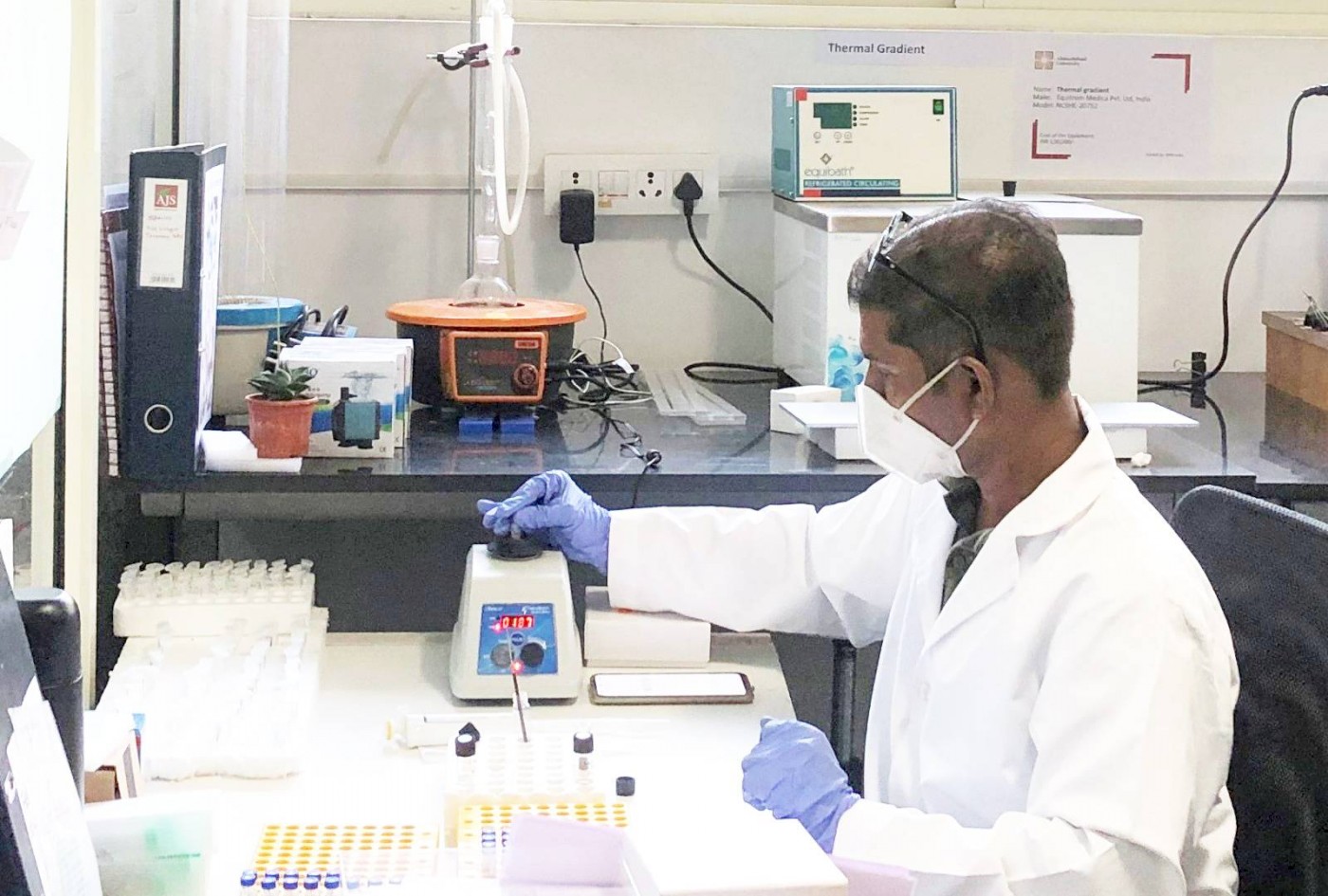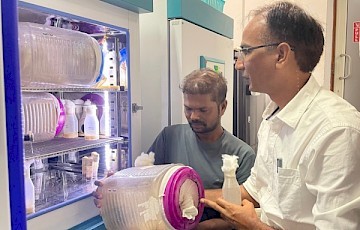20 May 2022
Grant for Education on Evolutionary Biology at Underserved High Schools

How does one generate curiosity for evolutionary biology among young children if the facilities they can avail of in their schools are next to nothing? This was the overriding factor guiding Professor Subhash Rajpurohit and Dr Harshad Mayekar when they applied for the Small Grants Program for Local and Regional Outreach Promoting the Understanding of Evolutionary Biology from the US-based Society for the Study of Evolution (SSE) this March. While both of them have been actively involved in social outreach programmes in the field of biology, they share the view that influencing future science learners, who are dedicated and passionate, can happen only at the grassroots level. That convinced them to apply for the Grant: for impacting underprivileged high schools and junior colleges with minimal or zero access to lab facilities and knowledge.
The two became the first Indians working within the country to receive the Grant of USD 1000 based on a highly competitive review process. Valid for a year, it will enable them to reach out to young minds across the country.
Associate Professor at the School of Arts and Sciences, Subhash Rajpurohit is an ecological and evolutionary physiologist. At his Experimental Ecology and Evolution Lab (EEE Lab) at Ahmedabad University, he hosts a resource of Indian Drosophila and encourages understanding species’ responses to climate change. Dr Mayekar is a National Postdoctoral Fellow at the lab, with his research interest being understanding how plastic responses evolve and enhance fitness when exposed to environmental fluctuations. He has completed his doctoral studies from IISER-Trivandrum and is currently pursuing juvenile pigment variation in fruit flies.
Dr Mayekar says that the team plans to conduct workshops for high school and undergraduate students to create awareness of biological research and evolutionary biology. It also plans to provide basic infrastructural facilities to non-privileged schools lacking knowhow in scientific practices. “It is always great to give back to society what we have, and this Grant serves as a platform to create a rapport between the public and Ahmedabad University. Also, more than the Grant money, it is about the effort and the outreach planning, which matters a lot,” he says.
Outlining how the Grant would be used, Professor Rajpurohit says, “We plan to use it in three phases through diverse outreach activities. We intend to provide infrastructure like low cost microscopes, slides, insect identifying keys, among other lab tools, workshops, teacher training modules, and actual fieldwork such as training students to bring back insects into the lab and observe them. We hope to make their biology teachers more evolved educators along the way. We desire that young minds get ignited and take to evolution studies eventually.”
The groundwork has begun in earnest with identifying a school on the outskirts of Jaisalamer, Rajasthan. The execution will happen in November and December when the weather is more conducive for fieldwork. At least two other schools will be evaluated and selected for outreach in the year.



